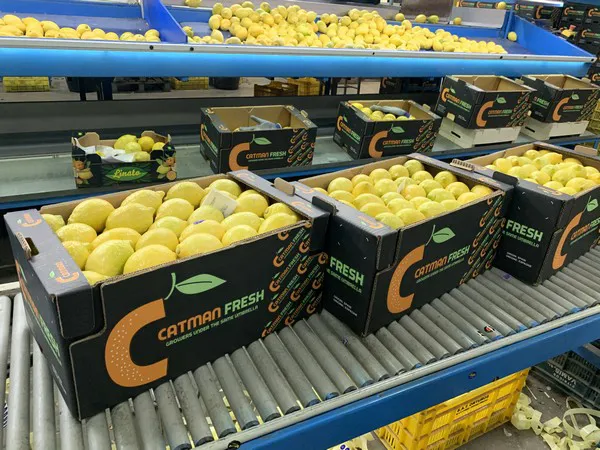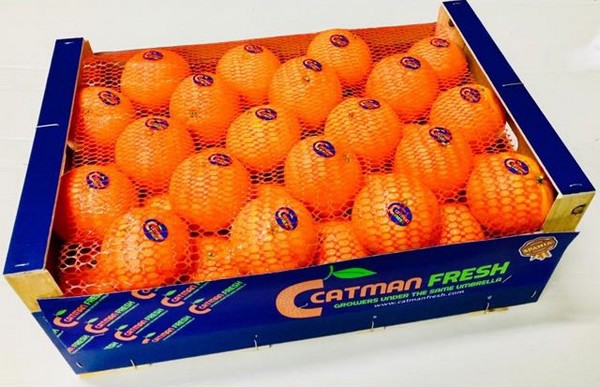Since the outbreak of the coronavirus crisis, the fresh fruit and vegetable sector, as well as that of food products in general, has been among the ones that have fortunately been able to continue its activity. The effects of this situation, however, are quite remarkable.
"The demand in the domestic market has calmed down a little, but now consumers in northern European countries are making mass purchases driven by collective panic, as has happened here in recent days. This is leading to a huge increase in the amount of orders," says Sergio Orobal, Manager of the Alicante-based company Catman Fresh, which is specialised in selling citrus fruits in autumn and winter and stone fruit in spring and summer.

"The question that all the buyers of large retailers are asking every day is: how much can we take? It is chaos, because we have been trying for some time to meet all the demand from large retailers, but now but we have to give priority to our most loyal customers. Meanwhile, many orders planned for the Horeca channel have been cancelled. Citrus prices have obviously risen because the demand has been higher," says the manager of this company.
The harvesting, handling and packing tasks have been slowed down due to mobility restrictions and hygiene measures, which include workers keeping at least 1.5 meters from each other. Practically no visits are made to the company's headquarters and hygiene measures are being taken to the extreme. "Those of us working in the office have it easier, because we can stay at home. Other workers have to stay at home because they have no one to look after their children, as the schools have been closed for days."
To this we must add the production and logistical costs, as many trucks are returning from their destinations empty, given that much of the industry has come to a standstill. Also, as a result of restaurants and hostels at service stations being closed, many carriers do not want to go on the road. In addition, border controls are causing orders to be delayed.

This situation has coincided with a citrus season with a significantly smaller crop than last year due to adverse weather conditions.
"Apart from this situation of the coronavirus, it has been a good citrus season for the grower, without doubt, even for large-scale distribution. For retailers, however, it has been more complicated because although prices have been relatively good, margins have been very tight and this has even led to losses, especially in lemon and orange, due to the high level of destruction caused by the storms. The percentage of usable fruit in orange and lemon has been lower and production costs have increased. It has been a complicated year for us," says Sergio Orobal.
Uncertainty for stone fruit, for which large volumes are expected
"We have had to cancel some trips to European countries that we had organized to launch programmes for the next stone fruit season. There is a lot of uncertainty about how it will start, as we don't know whether there will be greater restrictions on transport, or if states of alarm will be enforced in other European countries, and the production volume is expected to be very large."
Despite the fact that plantations have been uprooted due to the price crises of recent seasons, a great harvest is expected. "Prices could be reasonable, but there is also the fear that, as experts predict, the number of cases of coronavirus will continue to increase and it will be detected in some packing plants, which would force them to be quarantined. There have already been some cases in this sector," says Sergio Orobal.
For more information:
Sergio Orobal, managing director
Catman Fresh
Camino de Iryda, s/n
03190 Pilar de la Horadada, Alicante. Spain
+34 966 747 902
sergio@catmanfresh.com
www.catmanfresh.com
